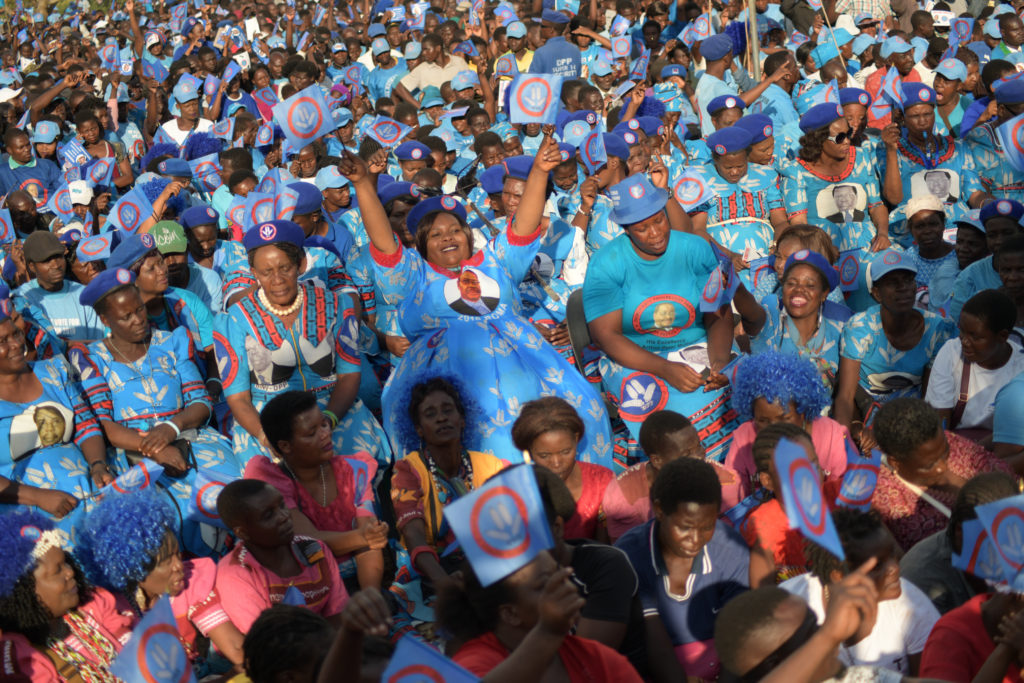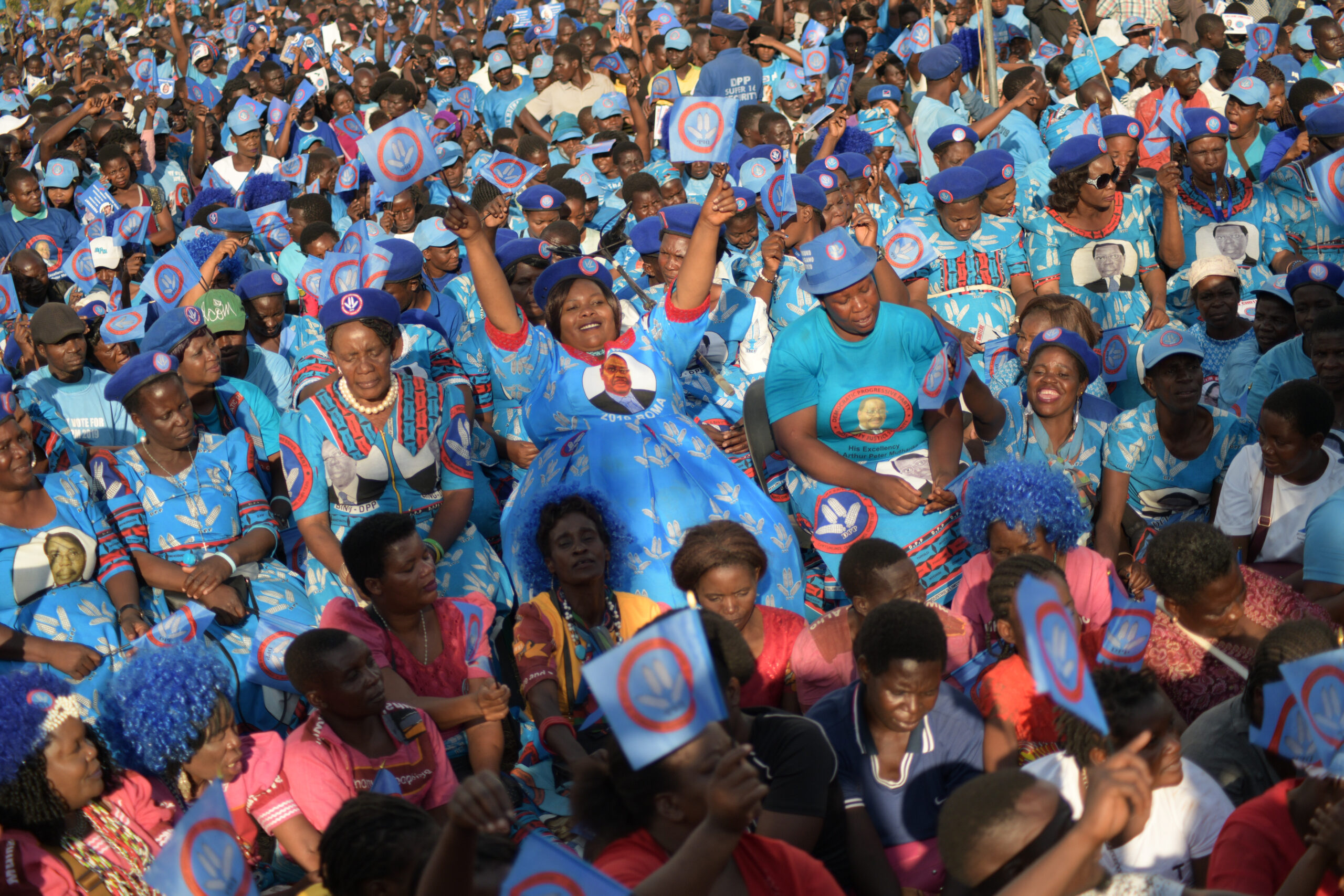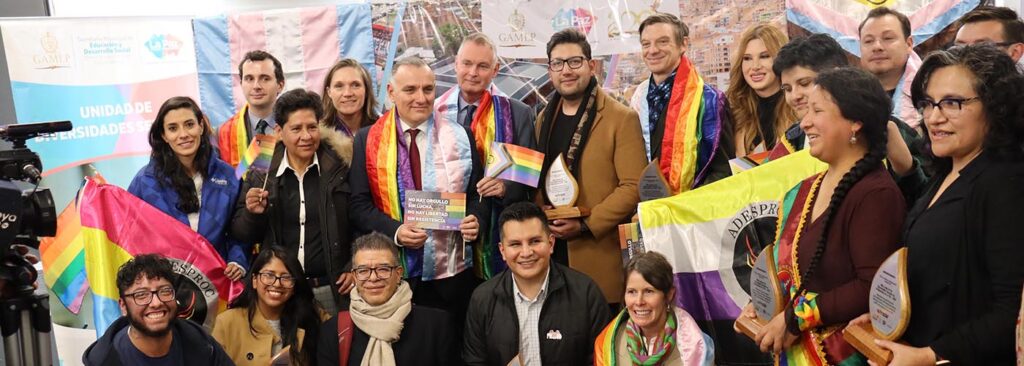id=”885″ id=”post-2580″ class=”wp-post-content-block ” itemscope itemtype=”http://schema.org/BlogPosting” itemprop=”blogPost”>

Of Beautiful Scripts and limited Implementation
Gender Mainstreaming in the Malawi National Gender Policy (2015) is understood as a process of consistently incorporating a sensitivity to gender differences/inequalities into the analysis, formulation and monitoring of strategies and activities that can address and help reduce inequalities between women and men. The Malawi gender mainstreaming guidelines (2007) indicate that despite commitments made at national and international levels, there are still gender disparities in all socio-economic development areas in Malawi. It says that women are grossly underrepresented in all areas and at all levels. Hence mainstreaming is supposed to address the practical and strategic gender needs of men, and women, boys and girls by incorporating gender issues in all aspects of development including decision making structures and planning process such as policy making, budgeting, programming, implementation, monitoring and evaluation at all levels and in all sectors and organizations.
The Legal and Policy Framework of Gender Mainstreaming in Public Sector Institutions in Malawi
Briefing #1
The public service is the main driver of the formulation and implementation of the national development agenda currently contained in the Malawi Growth and Development Strategy III and it comprises of the following institutions and staff that work therein: the National Assembly or the Parliamentary Service, the Judiciary or the Judicial Service the Civil Service which comprises all Government Ministries and Departments, the Defence Force the Police Service, the Local Government Authorities and any Corporation, Council, Board, Committee, public university (MOG, 2018).
Policy and Legal Frameworks to support the mainstreaming of Gender Equality
Malawi has over the years recognized gender equality as an important catalyst for accelerating development in the Constitution, in other gender related laws, international and regional commitments such as the Convention on the Elimination of All Forms of Discrimination against Women (CEDAW, 1979) and the Beijing Platform for Action and the SADC Gender Protocol. Through the Beijing Platform for Action, governments including Malawi endorsed a policy for the empowerment of women, the promotion of gender equality and gender mainstreaming as the strategy for achieving the empowerment and equality objectives. The National Gender Policy (2015) and other key government documents such as the Malawi Growth and Development Strategy (MGDS) III (2017-2022), the Public Service Management Policy (2018-2022), and the Public Service Reforms Policy Framework (2018), all identify gender equality as an important issue in the public service.
- i) The Malawi Constitution
The 1994 Constitution is the basic legal framework that promotes gender equality and full participation of women in Malawi. The Constitution of the Republic of Malawi in section 13 subsections (a) (i) identifies gender equality as one of the Principles of National policy. On Gender Equality, the Constitution states that the goal is to obtain gender equality for women with men through: full participation of women in all spheres of Malawian society on the basis of equality with men; the implementation of the principles of non-discrimination and such other measures as may be required; and the implementation of policies to address social issues such as domestic violence, security of the person, lack of maternity benefits, economic exploitation and rights to property. Section 20 of the Constitution also guarantees equality by prohibiting discrimination of persons in any form on various grounds including sex, or other status. Further, Section 24 of the Constitution specifically guarantees the rights of women not to be discriminated against on the basis of their gender or marital status and provides for the elimination of laws that discriminate against women, and for the passing of legislation to eliminate customs and practices that tend to discriminate against women. One such legislation that Malawi has passed is the Gender Equality Act (GEA).
ii) The National Gender Policy
The second edition of the National Gender Policy launched in December 2015 provides guidelines for mainstreaming gender in public institutions and various sectors of the economy with the overall goal of reducing gender inequalities and enhancing participation of women, men, girls and boys in socio economic and political development. The aim of the Policy is to strengthen gender mainstreaming and women empowerment at all levels in order to facilitate the attainment of gender equality and equity in Malawi. The following are some of the policy outcomes:
- Increased meaningful participation of women, men, girls and boys in decision making, wealth creation and poverty reduction;
- Reduced gender based violence at all levels;
- Enhanced gender mainstreaming across all sectors; and
- Enhanced institutional capacity of the National Gender Machinery
The policy is targeting the following priority areas: gender in education and training; gender and health; gender and agriculture, food security and nutrition; gender and natural resources, environment and climate change management; gender and economic development; gender, governance and human rights. The Policy also prioritizes interventions in gender based violence and capacity of the national gender machinery.
iii) The Gender Equality Act (2013)
The Gender Equality Act is an important piece of legislation which epitomizes Malawi’s Constitutional commitment to ensuring gender equality so that men and women have equal opportunity to enjoy the full spectrum of human rights in all spheres of life. It addresses sex discrimination, harmful cultural practices, sexual harassment and discrimination. Section 11 of the Gender Equality Act specifically relates to recruitment and appointment into public service. It provides for gender quotas by requiring no less than forty per cent (40%) and no more than sixty percent (60%) of either sex in any department in the public service. Sections 12 and 13 call for greater accountability and transparency measures in implementation of the quotas provided and non- compliance in implementation of these quotas can be challenged in court to compel recruiting authority to observe the law.
The assessment found that the Gender Equality Act is not usually adhered to during recruitment in the Public Service bodies because the two pieces of legislation, that guide recruitment in the Public Service namely the Public Service Act of 1994, and the Malawi Public Service Regulations are not aligned with the Gender Equality Act. The review of the Public Service Act that was done in 2016 identified 15 provisions in the Act relevant to recruitment, appointment and conditions of service in the Public Service and found that these provisions are inadequate in ensuring gender equality as they do not go beyond formal equality to recognise the need for specific attention to mainstream gender and ensure gender equality. It is thus imperative to align the provisions of the Public Service Act and Malawi Public Service Regulations on recruitment and appointment with the Gender Equality Act, in particular section 11.
iv) The Malawi Growth and Development Strategy III
The Malawi Growth and Development Strategy III recognizes gender among others as one of the crosscutting issues which is crucial for socioeconomic development of the country. The strategy indicates that systematic mainstreaming of gender, youth, persons with disability and the elderly can facilitate effective development planning and coordination, budgeting, implementation, and monitoring. It acknowledges that because of limited success with ordinary gender mainstreaming to address structural gender inequalities, there is need to develop awareness that challenges and redefines rigid gender norms using gender transformative approaches that create opportunities for individuals to not only actively challenge gender norms but to promote positions of social and political influence for women in communities, and address power inequities between persons of different genders. One of the Malawi Growth and Development Strategy III outcomes is gender and youth mainstreamed in all sector plans, policies, programmes and development frameworks and some of key strategies highlighted for this include: ensuring the consistent implementation of gender responsive budgeting across sectors; ensuring the effective participation of children, youth and women in decision making processes; and increasing youth and women participation in the economy.
v) The Malawi Budget Guidelines
The 2019/20 Budget guidelines also give priority to mainstreaming gender in the budgeting process. The guidelines specifically stipulate that:
“emphasis is on ensuring that budgets of Ministries, Departments, and Agencies match the needs of women and men, girls and boys which are inherent in their specific gender roles, responsibilities and constraints. In this regard, government ministries, department and agencies are advised to address the needs of females and males in the activities, outputs and budget of each programme and sub-programme as a priority and make sure that sufficient resources are allocated to the described gender inequality areas (Ministry of Finance, 2019:15)
The inclusion of gender mainstreaming and gender responsive budgeting in these key government documents creates a favourable environment for mainstreaming and is an opportunity for the Ministry of Gender Children Disability Social Welfare but the main problem relates to implementation and enforcement. One key informant pointed out:
The missing link is that these documents are usually drafted by technical officers, yet controlling officers within the government ministries, departments and agencies do not show real interest to implement the provisions of these documents. GRB is a very important initiative for the economy which need to be debated and adopted in Parliament and at Cabinet and ensure that there are penalties and incentives for implementation. Many of the public sector reforms currently have no penalties for lack of implementation and incentives for doing well (Key informant interview, Ministry of Finance, July, 2019).
Policy Implications and recommendations
The conclusion that we draw is that despite these progressive narratives in the Constitution, National Gender Policy, Gender Equality Act, Malawi Growth and Development Strategy, and the country‘s Budget Guidelines, the key perennial problem has generally been limited implementation of the noble provisions contained in these various documents. The main problem relates to dissemination, implemementation and enforcement. We make the following recommendations:
- Gender equality mainstreaming provisions in budget processes together with penalties and incentives need to be formally adopted in Parliaments.
- Amend the Public Service Act and Malawi Public Service Regulations to explicitly recognise the Gender Equality Act 40/60 quotas in recruitment, appointment, as well as in promotion and training opportunities.
- Include gender equality and mainstreaming as guiding principles for the general administration of the Public Service in the relevant Public Service Acts and Regulations.
- Develop implementation guidelines of the Gender Equality Act and create awareness of its implementation among all public sector institutions.
- Put measures to enforce adherence to the Gender Equality Act during the appointment of members in Commissions and Boards of Parastatals.
- Review the gender mainstreaming guidelines for the whole Civil Service so that there is one gender policy for the entire Civil Service as opposed to encouraging entities to develop their own gender policies.
Key References
GOM (2018), Malawi Public Service Management Reforms Policy. Lilongwe: Office of the President and Cabinet.
GOM (2007), Managing Human Resources within the Government of Malawi: Guidelines on Gender Mainstreaming. Lilongwe: Ministry of Gender Children Disability and Social Welfare and Department of Human Resources Management and Development
GOM (2015), The National Gender Policy. Lilongwe: Ministry of Gender Children and Social Welfare.
GOM (2013), The Gender Equality Act. Zomba: Government Press.
GOM (1994), The Public Service Act No 19 Zomba: Government Press.
Ministry of Finance (2019), Guidelines for the Preparation of the 2019/20 budget. Lilongwe: Ministry of Finance and Economic Planning
United Nations (1979), Convention on the Elimination of All Forms of Discrimination against Women (CEDAW, 1979).




